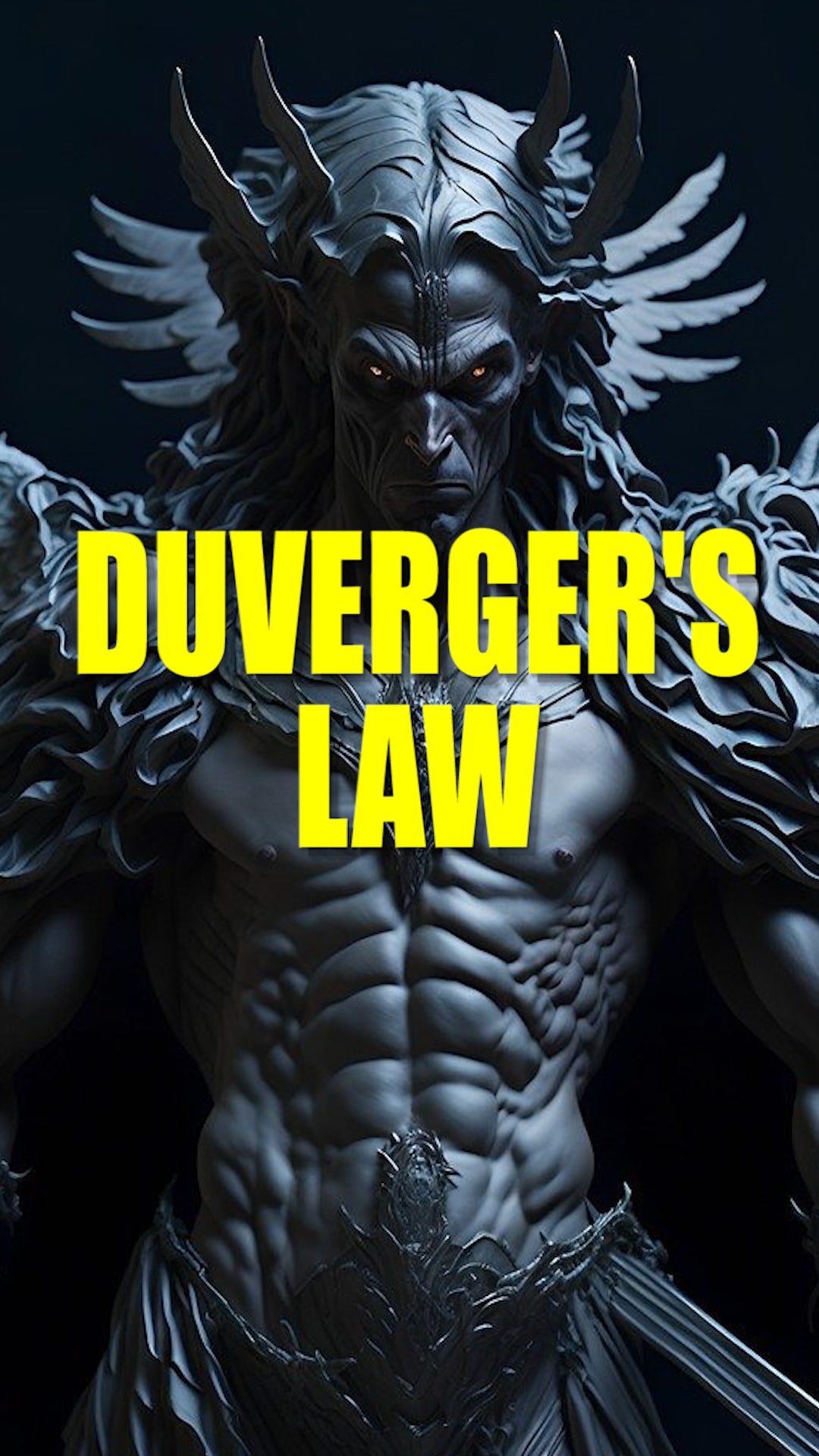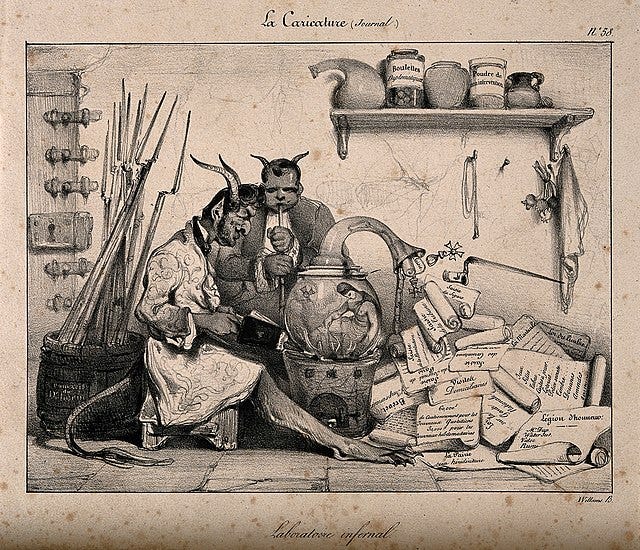Have you ever had to hold your nose and vote for a candidate, not because you like them, but because they represented the "lesser of two evils" in an election?
Winner-take-all creates the phenomenon known as the “lesser of two evils.” The major parties are not popular. In 2017 both the Republican and Democratic Parties cratered in public opinion polls. Only 37 percent of Americans had a favorable view of Democrats while Republicans hit an all-time low of 29 percent. Today those numbers sit at 39 for Democrats and 42 percent for Republicans. In both cases, it's a minority of US citizens who actually like either major party. This means that walking into a voting booth on Election Day can be a little like walking into a festering porta john on the last day of Coachella. You’re not voting for one candidate so much as voting against another candidate. This is the essence of the “lesser of two evils” dilemma.
Like economics, political science likes to call itself a “science” because it confers legitimacy on that particular area of expertise. Political scientists sometimes use mathematical formulations to “prove” their theories. They’d like you to think that because they’ve spent long careers studying politics they have figured it all out. That’s not entirely true. When we discuss political science we are discussing human behavior which sometimes shows patterns but is also complex and subject to infinite variations based on context and circumstances. There is very little that has proven verifiably consistent with anything approaching what you might call scientific proof. Human behavior is not calculus.
However, there is one principle that comes as close to ironclad as is possible in political science: Duverger’s Law. Maurice Duverger was a French sociologist who helped create political science. He spent his career studying the evolution of political systems and the theory that bears his name says that when you have winner-take-all elections you almost always end up with a two-party system.
Think about it. There is nothing in our Constitution that says we should have only two political parties. There is nothing in our founding document about parties at all. Our Constitution makes no provision for them whatsoever. In fact, the framers were leery of political parties at first (despite ultimately becoming party founders as well as founding fathers), making grave pronouncements about the dangers of “faction.” Some resisted the formation of what became the Democratic and Whig Parties. Yet form they did.
This is because of human psychology. The way Duverger saw it, when there can only be one winner a voter must be strategic. If you have a three-way race, for example, if one candidate takes a 40 percent plurality of the vote and the other two split 30-30, the candidate with 40 percent wins and 60 percent of voters lose. If the winning candidate in this scenario is a Democrat running against a Republican and a (somehow staggeringly popular) Libertarian, the 60 percent on the losing side will have faced a difficult decision. In a winner-take-all election, the voter is forced to take a hard look at their options. More often than not they will decide to choose the “lesser of two evils.” In our imagined election, 30 percent of the voters may really like the Libertarian candidate and viscerally hate the Republican. But if the Republican candidate is perceived as having a better shot at winning against the Democrat, voters will hold their noses and vote for the Republican anyway. The charge is that voting for the candidate you like actually becomes a vote for the candidate you like the least or a “wasted” vote. This means the non-major party candidate is often considered a spoiler. Voters are forced into not voting for the best candidate – the candidate they like best - but the “least worst” candidate. As Theodore Lowi put it, “… the only way to vote no for the candidate you hate is to vote yes for the one you can barely tolerate.” Voters are forced to vote more out of fear than aspiration. Voters are trying to prevent the election of candidates they dislike rather than make an affirmative choice for someone they want. When you’re making decisions in this way there is not really much choice at all.
Then comes the vote shaming. There were plenty of Americans on the left who were not thrilled at the prospect of a Hillary Clinton presidency in 2016. Their lack of enthusiasm had nothing to do with misogyny and everything to do with Clinton’s long support of Wall Street and other prominent business interests. But anyone who considered supporting Green Party candidate Jill Stein was told they would be blamed if Donald Trump won. Penn State professor Sophia McClennen likened this phenomenon to a similar one saying “Vote shaming, like fat shaming, depends on assuming there is only one way to be – get on board or be bullied.”
We don't have to accept this. Restricting our choices to the "least worst" option is something voters hate, but the two-party system loves. Democrats and Republicans don't want to compete. What we have is a clear duopoly - like a monopoly but there are two choices instead of just one. Both major parties like having this situation. They like when voters have to hold their noses and choose one of them. But why should we consent to this? There are other alternatives. I think we should explore our options. It doesn't have to be like this. Please give me a like, a follow, a favorite, and subscribe to my free substack for all your citation needs. Let's make them pay.










Are you getting any traction for these ideas? Is anyone doing the organing work it will take to bring these ideas to the ballot box?